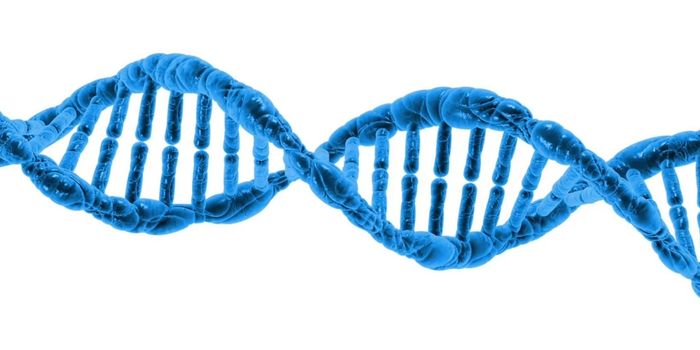In Autism, Background Mutations can Impact Disease Severity
While people are made from the same genes, small changes in those genes can have a huge impact on our biology. New research reported in Genetics in Medicine has shown how in the case of neurodevelopmental disorders like autism or ADHD, the number of rare mutations carried by an individual can influence the severity of neurodevelopmental disease. Those mutations, which might be genetic deletions, base changes or duplications, can cause an illness to present very differently in different individuals.
"Genetic sequencing tools can reveal a large number of mutations in a person's genome, but diagnosis typically focuses on identifying one primary mutation as the cause of a disorder," noted the senior author of the work Santhosh Girirajan, associate professor of biochemistry and molecular biology and anthropology at Penn State. "However, this strategy does not explain why many individuals with the same primary mutation have very different features or symptoms; for example, when a parent and child have the same primary mutation but only the child develops the disorder. Our work reveals that the primary mutation likely sensitizes a person to a disorder, but the amount of other mutations elsewhere in the genome is what actually determines the cognitive ability and developmental features in that person."
Two mutations are known to cause neurodevelopmental problems in children that carry them; the 16p11.2 and 16p12.1 deletions are both on chromosome 16. The researchers used these genes as a jumping off point, searching affected carriers for other mutations. They found that when an individual had one of those mutations, and they also had clinical characteristics of a disease, they also had many more genetic mutations compared to siblings and parents who carried the mutation but did not show features of the disease. The research team also connected mutation number with head size and IQ scores.
"This suggests that a child with a higher number of mutations in the genetic background is more likely to develop intellectual disabilities," said Girirajan. "The more mutations you have, the more different types of combinations you have that can potentially produce clinical features. Most of these mutations in the genetic background are passed on by the parents, and when the parents' mutations come together in a combinatorial way, the child ends up having more than what either parent had individually. The primary mutation is usually only passed on by one of the parents, and it turns out that the parent who does not pass on the primary mutation actually passes on more mutations in the genetic background. This tells us that getting information about family history, about the parents' genetic profile, is incredibly useful when trying to make a diagnosis."
While the researchers focused on the parts of the genome that code for protein, they plan to expand their study to other regions. They are hopeful that their work will eventually show who is most in need of certain therapies.
"We need more-thorough screens when a patient comes into a clinic so that we can consider more than just one mutation," explained Girirajan. "With knowledge about the family history and genetic background, we can get closer to a more accurate prognosis and provide rehabilitation sooner. For example, a patient could start speech therapy or physical rehabilitation before the developmental delay hits."
Penn State is working in other ways to help families that are impacted by autism. Learn more from the video.
Sources: AAAS/Eurekalert! Via Penn State, Genetics in Medicine









